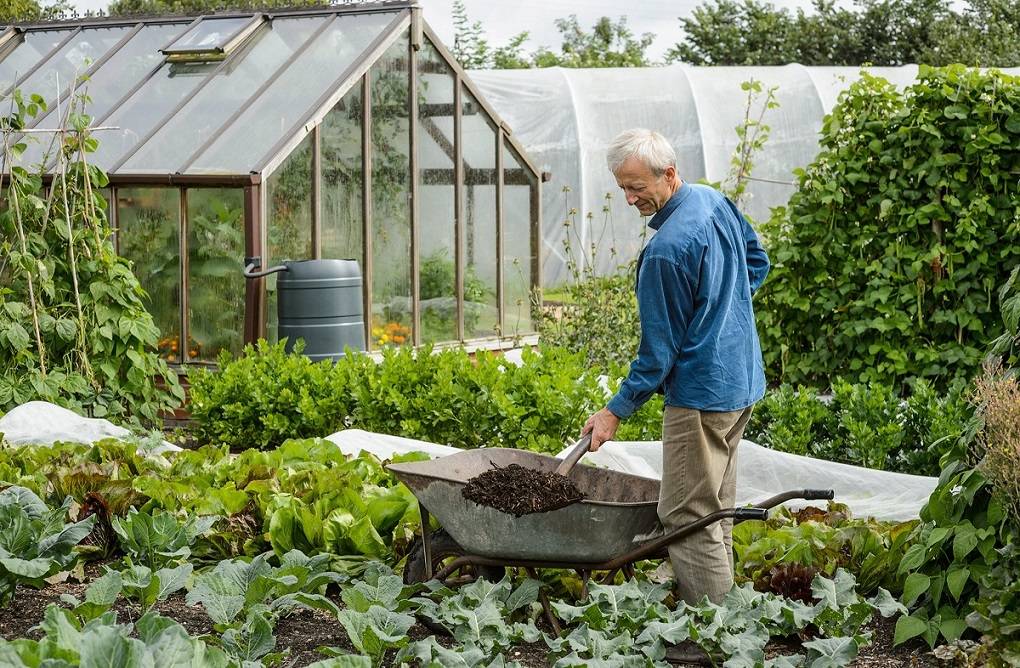
Traditionally, for agriculture and gardening purposes, the ground is dug up and turned multiple times throughout the year. This practice is known as tilling and it disrupts the structure of the soil causing it to erode quickly. It also kills beneficial bacteria and organisms along the way.
No-dig or no-digging gardening is an alternative to the traditional form of gardening. In no-dig gardening, the soil is never dug up or turned instead it builds layers on top of the existing soil in order to not disturb the organisms living in the soil.
How does no-dig gardening work?
Recent studies have shown that tilling the land disrupts the soil’s natural structure and reduces beneficial organisms which create the soil healthy and fertile. Tilling might eliminate weeds but it brings dormant weed seeds to the surface of the soil and simulates microbial growth for a limited period of time.
On the other hand, in no-dig gardening, the field is not dug up. Before adding layers of mulch and compost to the soil, the field is prepared by removing weeds from the ground. Add a layer of organic mulch, such as newspaper or cardboard to smother and prevent weeds from growing.
Water this layer and move on to the next, which is manure. Manure makes the second layer in no-dig gardening. Solid waste from cattle is applied to the soil to block sunlight from reaching the weeds and the grass beneath the first layer. Manure also improves the structure of the soil, provides vital nutrients to the soil, and aerates it along the way.
Water this layer and add a layer of organic compost. Use all vegetable peelings, fruit peelings, fruit waste, uneaten food, loose tea, ground coffee, disease-free planting prunings, disease-free leaves, and grass cutting to form compost. Follow this layer with straw, then manure, and then add a final layer of straw.
Advantages of no-dig gardening:
-
Saves water- Like with most organic farming and gardening practices, no-dig gardening helps the soil retain water and absorb water better. This method of cultivation makes the soil survive and thrive in low water and even drought-like conditions. It also means that you don’t have to water the crops as regularly as before. The no-dig method prevents soil erosion as the soil surface is left undisturbed.
-
Saves time and energy- Since there is no tilling required when it comes to the no-dig method, you can end up saving a lot of time and energy. Plus, you can save a lot of money as well, since all of the layers are made from organic waste and things that are lying in the home.
-
Reduce soil compaction- No-dig gardens do not suffer from soil compaction as long as the soil is properly taken care of and the soil is not trampled. Plus, the live organisms present beneath the soil form tunnels to reach the decomposing material which naturally promotes soil aeration.
-
Natural weed control- All of the layers on top of the soil reduce the weed’s access to sunlight. This stops the weed seeds from germinating and establishing themselves in the garden.
In order to grow beautiful vegetables and plants through no-dig cultivation, it is important that you frequently add a layer of mulch to suppress weed growth, lock in moisture, and prevent soil erosion. You must avoid compacting the soil by preparing paths that stop you from stepping on the soil, thereby, compacting the soil and breaking up its surface.










